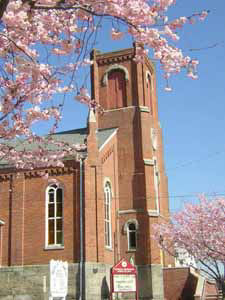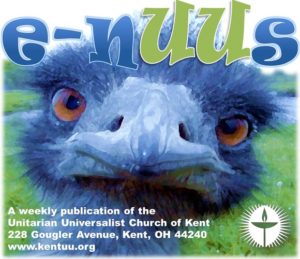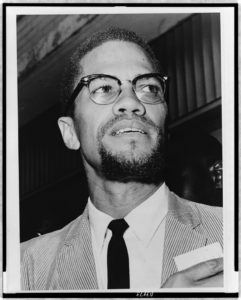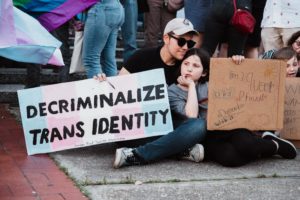The Church’s goal is to grow a thriving community while developing a sound financial base, according to Treasurer Lois Weir and Board Moderator Don Gregg in an interview last week.
That’s a difficult balance to achieve, Lois and Don admitted; but the Church has a plan to achieve both even in these uncertain financial times.
According to Lois and Don, here are some of the changes taking place:
Controlling Expenses.
- Next fiscal year, the Church’s budget is set at $436,495.12, a slight increase from this fiscal year’s $430,308.71
- This was achieved by cutting expenses: no salary increases and cuts in discretionary expenses, said Lois and Don. These were difficult measures especially in these inflationary times.
- Hobbs Hall has added expenses.
- Don said, “We didn’t have a good plan for growing into our building [Hobbs Hall} and dealing with the increasing costs.”
- Instead of putting aside money to “grow” into the building, the Board decided to put the money into the endowment. Now the Church is borrowing from the endowment to cover those costs.
- Long-term Financial Planning.
- The Church has called on the Unitarian Universalist Association to help.
- Lois explained that many congregations in the UUA (and other denominations as well) are facing challenging financial times because of COVID and the added online expenses that the pandemic has brought, but “there are folks at the UUA that are available to us that will help us make a good, solid plan to get back to solvency in three to five years.”
Involving the Church Community.
- Everyone in the Church community needs to be involved, the two agreed.
- Some members might organize fundraisers that the Church has not traditionally done. Others might work on new committees, including the group that will help solicit rentals for Hobbs Hall. More might volunteer for the Tech Team and the Service Auction. A few might write grants. Everything helps.
- Lois explained, “Part of our way out of this is to get full engagement from everybody in the community – not just with their money but with their time.
Growing the Membership.
- Both agreed that increasing the number of members will add vitality to the Church – and a growing campus, a fully engaged community and greater visibility in the city will increase the spotlight on the UUCK.
- As Lois explained, “I think there are people out there in the community that might be open to what our denomination has to offer.”
Achieving a Successful Pledge Drive.
- Meeting the $275,000 Pledge goal, which accounts for 63 percent of the Church’s budget, is absolutely essential to the Church’s financial stability, the two agreed.
- Pledges are what “we live on,” Don emphasized “It’s really important to have a successful [Pledge] drive. “
- He encouraged Church members and friends to give what they can. “You aren’t expected to solve our problems on your own. It’s okay if you can’t pledge more. Having you as part of our community is what’s important.”
- Lois agreed, “It’s not about the money. It’s about the whole person. Your time, your talent and your treasure. And some of us can give more time than treasure and vice versa.”
- Lois and Don committed to increasing their pledges.
- But to cover the budget now and next fiscal year, the Church will need to again borrow from the endowment
Borrowing from the Endowment.
- Current 2022/2023 budget: To date, the Church has borrowed $25,000. Both Lois and Don emphasized that the Church will likely not have to draw the full amount of $133,000 to “close the gap” as was projected last year.
- If the full budgeted amount of $133, 000 is needed for the current fiscal year, the Hobbs Endowment fund balance will be $71,763.
- A loan from the endowment will be needed to get through fiscal 2023/2024. Under the proposed budget for fiscal year 2023/2024, the Church expects to borrow $98,000.
- This will exhaust and exceed the Hobbs Endowment balance.
- The Board may need to re-designate other resources from the original Hobbs Bequest to make additional funds available for operations.
- However, Don emphasized that the amount to be borrowed for this current fiscal year (2022/2023) and next fiscal year (2023/2024) are not final.
Lois and Don said this year and next fiscal year are pivotal to the Church’s financial stability. But in the end, the answer is with the congregation.
Lois explained, “…the key to solving this problem is growth. We need not just a larger congregation but a congregation that is excited and loves this place and looks forward to putting in the time and the effort and the money to make it go.”
–The Generosity Team
Kay Eckman, Claudia Miller and Marion Yeagler.







